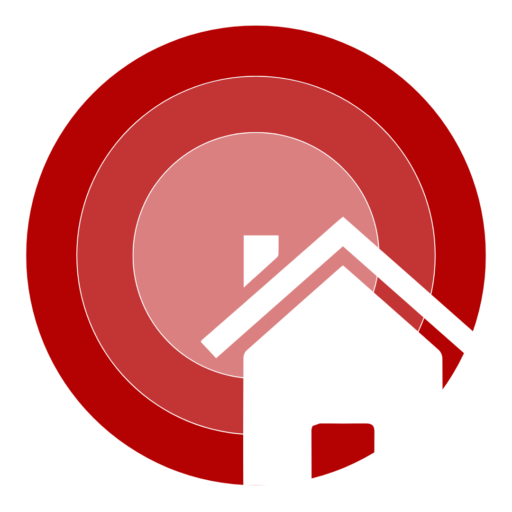Financing property: Few people enjoy getting into the lending side of a new home purchase, and yes, it can be a drag. BUT this should really be the first step of preparing to buy a home. (Click here to see all the steps in our Beginner’s Home Buying Guide.)
Whether you’re a real estate investor or buying a home to live in yourself, you have to have money to make the purchase. And very few of us have enough capital to just pay cash, so we usually have to borrow at least some of the money.
With all the financial jargon and all the hoops to jump through, the whole business of financing and mortgages can seem highly complex and more than a little intimidating. Researching it online is the worst because every page on lending is filled with so many ads and pop ups it barely loads, and you can’t get all the information you need without filling out a form for lenders to contact you through.
But if you know ahead of time what to expect and understand the basics, it’s really not all that difficult. So here is our beginner’s guide to financing property in Seattle.
How Much Can You Borrow For Your Mortgage?

The first thing you’ll need to determine before ever looking for a property is how much you can borrow because that determine the price of house you can buy. The amount you can borrow will, of course, depend on your income and other outstanding debt, but it will also depend on the interest rate and the property’s insurance and tax costs.
Lenders use a variety of factors including your income ratio and your debt ratio to determine your borrowing limits. For example, your housing payment should be no more than about 1/3 of your income. (If you make $6K/month, you can pay $2K/month on PITI). Your debt payments (including housing expenses, car payments, credit cards, and student loans) should be no more than about 36% of your income.
How Much Cash Can You Bring As A Down Payment?
When financing property in Seattle, the amount you can pay down is not always the amount you should pay down. The standard down payment across the industry is 20% of the purchase price, but you can, in fact, buy a home with a much smaller down payment if you need to. (You can also put 25% or more down and lower your payments AND your interest rate!)
Another thing to consider when assessing your cash position when it comes to raising money for the down payment is how much money you will have left AFTER you’ve purchased the house. Lenders don’t want to see you pay your last dime into the property just to acquire it. You need to have a cash reserve for things like house repairs, car repairs, and other emergencies so you’re not stuck unable to make your house payment if you have an unexpected bad month, financially. Remember to budget for repairs and upgrades to your home, interruptions to your income, and other situations that might come up.
What Interest Rates Are Available On Property Purchases?

One of the best things about buying a home to live in yourself is that the interest rates are very low. Current rates on mortgages are a chief concern when you’re financing property in Seattle. The two basic interest-rate options for home mortgages are fixed-rate and adjustable-rate mortgages.
With a fixed-rate mortgage, you will pay the same fixed payment (Principle and Interest) at the same interest rate for the entire life of the loan (usually 15- or 30-years). At the end of the 30-year term, your loan will have been completely paid off. Then you can do your Dave Ramsey scream, “We’re debt free!” This is a good option for people who can lock in a low interest rate based on good credit and good timing in the marketplace, and who want a predictable monthly payment for budgeting purposes. However, remember that your property taxes and insurance can still change (go up, most likely) over time.
An adjustable-rate mortgage, on the other hand, usually has a fixed rate for just the first five years, and then the interest rate can change. The adjustable-rate mortgage usually begins with a very low interest rate (to make it more affordable) and then often goes up. Hopefully you will be making more money in the future and will be more able to pay the higher interest rate at this time. This is also a good option if you don’t plan to keep the home for more than just a handful of years. For instance, many doctors may buy a home when they are residents, early in their careers, with the expectation of moving-up into a nicer home when their income increases in the future.
Should You Get A 30-Year Mortgage Or Try To Pay It Off Early?
Another important consideration for financing property in Seattle is whether a 30-year or a 15-year loan will be better for you. Seattle properties are so expensive, almost nobody gets a 15-year loan (except maybe for a refi) because they are just barely getting into the house by the skin of their teeth!
If a 15-year mortgage is in your budget, it’s worth considering as you can usually get a lower interest rate on these shorter loans. If you’re thinking about a shorter-term mortgage, but not sure you can commit to the higher monthly payments, consider just getting a 30-year mortgage but saving money on interest expenses and paying it off earlier by sending in two payments a month. Here’s a cool article showing how the math on that works.
Here’s an example of how prepaying saves money and time: Kaylyn takes out a $120,000 mortgage at a 4.5 percent interest rate. The monthly mortgage principal and interest total $608.02. Here’s what happens when Kaylyn makes extra mortgage payments:
| Payment method | Pay off loan in … | Total interest | Total interest saved |
|---|---|---|---|
| Minimum every month | 30 years | $98,888 | $0 |
| 13 payments a year* | 25 years, 9 months | $82,870 | $16,018 |
| $100 extra every month | 22 years, 6 months | $70,944 | $27,944 |
| $50 extra every month | 25 years, 8 months | $82,452 | $16,436 |
| $25 extra every month | 27 years, 8 months | $89,864 | $9,024 |
| *Extra $608.02 payment |
Different Loan Programs Can Help Specific Categories of Borrowers

Another thing to consider is the type of mortgage that best meets your needs. Some of the more common loan programs include:
- Conventional / Conforming Loans – This is the type of mortgage that most people are familiar with and requires at least 20% down. These loans conform to Fannie Mae and Freddie Mac (government agencies) underwriting standards and is not federally insured or guaranteed. Most banks originate these loans and then sell them to another institution to service and collect your payments.
- Jumbo Loans – Jumbo loans are extra-big mortgages for houses where the borrower must borrow more than the amount allowed by conventional loans. For example, in King, Pierce and Snohomish County, you can get a conforming loan up to $741,000 in 2020. Loans larger than that would be jumbo loans.
- FHA Loans– This type of loan is governmentally insured, and, as a result, typically has looser credit standards with lower down payments required. These are often good loans for people with lower income levels, or who don’t have a lot of money (20% down) to use as a down payment.
- VA Loans – Most people are at least a little familiar with VA loans. These loans are for vetrans and in some cases their surviving spouses. VA Loans are backed by the U.S. Department of Veterans Affairs and have several advantages for those who qualify, including no down payment.
- USDA Loans – Implemented to encourage rural home buying, USDA loans have no required down payment, but the fees are fairly steep. These loans are not common here because this is not a rural area.
Buying a home will likely be the largest financial transaction of your entire life, so financing property in Seattle is a big step – one that may affect you for years to come. Please let me know if you have questions about whether you can afford to buy your first or next home and how you would go about financing the property. If I am not able to assist you directly, I will be happy to put you in touch with one of the no-pressure lenders that I work with who will also be happy to answer your questions.
What To Avoid After You Get Pre-Qualified, but BEFORE You’ve Closed On The Deal
Remember getting qualified for your loan is only the first step. You have to STAY qualified until you are ready to close on your purchase!
